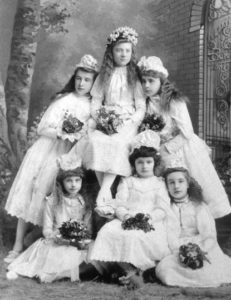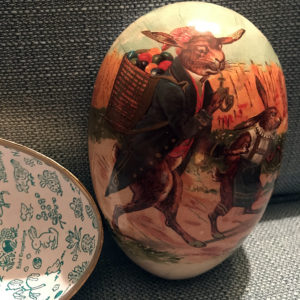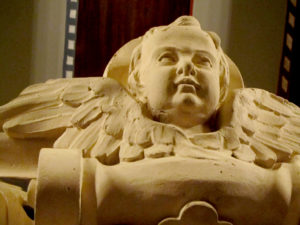Tonight, this last of April, brings a welcome to summer. The setting sun will bring us Walpurgis Night, the Eve of St. Walpurga’s Day. These are obscure celebrations in the States, as is May Day, but the common thread tonight and tomorrow is that we are springing now into summer. Life is exploding everywhere around us as trees leaf out and bloom and as bulbs beneath the earth erupt into flowers that carpet the ground. In the Northern Hemisphere, we approach the gentle time of year.
What’s traditional to this night? Bonfires (translated easily to a backyard fire or an illuminated candle), and gravlax (a delicious cured smoked salmon from Scandinavia) and sparkling wine enjoyed outdoors. Outdoors is key, and for many, Walpurgis Night, or May Eve, is a night to spend entirely outdoors, gathering blossoms and greenery with which to decorate our homes tomorrow on May Day. It’s another of the holidays that the Puritans really disliked, for who knew what mischief folks would get to out in the woods alone at night? One result of this Puritanical distrust is that maypoles and May Day celebrations never took root here in this country quite to the extent that they had in Europe, much to our loss as a nation, and these traditions were tough to recover even in England, where the Puritans were in power from 1649 to 1660. During their reign, May Day was banned (along with maypoles and even Christmas). The most joyous place for a May Day celebration would seem to be Scandinavia, where winter’s darkness is most severe, and where one can imagine a day to welcome summer would be heartily received.
For the Celts, this is the entry into Beltane (pronounced bowl-tan-a). It is the cross-quarter day opposite Samhain, which comes at Halloween and All Souls Day. Being the opposite spoke in the wheel of the year, our perspective is opposite, as well: While at Samhain we were gathering in and shifting sights inward, now we are emerging and shifting sights outward. It is the time of growth and openness, a rebirth into the world: bursting forth, bursting forth. Rivers running, leaves and flowers exploding onto the scene, filling spaces in the sky and the landscape that were not long ago stark with winter’s emptiness.
A fire, a candle, gravlax, and sparkling wine. If you’ve none of these things with which to celebrate––or if you have them all––here is a good thing for your celebration. It’s a poem by our Book of Days hero Robert Herrick. It’s from his book Hesperides, first published in 1648, as the Puritans were rising to power in England. Read it silently to yourself, read it aloud to yourself, read it to someone you love. It is one of my favorite poems, a thing of beauty, a thing of this earth, and love, of course, calls us to the things of this earth.
CORINNA’S GOING A MAYING
by Robert Herrick
Image: “The May Queen of New Westminster’s Annual May Day,” possibly by S.J. Thompson, British Columbia, Canada. Photograph, c.1887. The photograph comes with the following information: “The May Queen and her court. Girl at top left is Adelaide Ewen born in 1877. She was the daughter of Alexander and Mary Rogers Ewen. Isabel Macmillan Latta, the donor of the photo, was the daughter of Isabella Ewen whose sister is in this photo.” [Public domain] via Wikimedia Commons.


